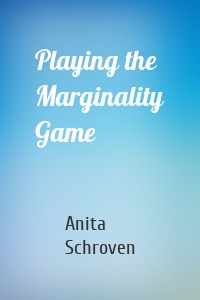Anita Schroven
1 кн.
Playing the Marginality Game
In Guinea, situated against the background of central government struggles, rural elites use identity politics through contemporary political reforms to maintain their privileges and perpetuate a generations-old local social contract that bridges ethnic and religious divides. Simultaneously, administrative reform and national unrest lead to the creative re-combination of sources of authority and practices of legitimate rule. Past periods of colonization, socialism and authoritarian regime are...
| Автор | Anita Schroven |


